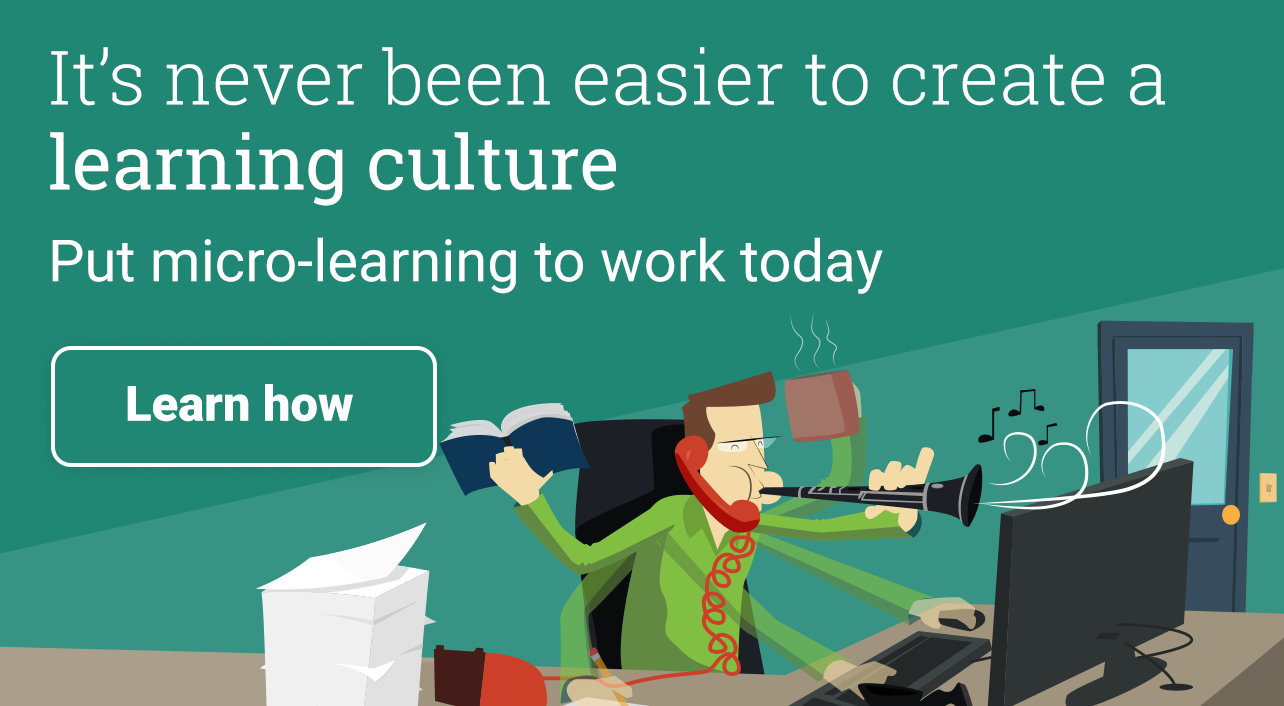- corporate
- Blog post
Study: How Millennials Learn Best
In recent years, a lot of hand-wringing has been devoted to accommodating the millennial workforce. How different are they from previous generations? How can organizations effectively motivate and engage them? Are they knowledge-hungry strivers or lazy, entitled know-it-alls?
It’s dangerous to paint any large group of individuals with the same brush, but one thing appears certain: Millennials learn differently.
Digital natives – who’ve had access to web-based technology for most, if not all, of their lives – have certain expectations when it comes to learning. But what do they expect? And how can learning professionals help them succeed in workplace learning?
The research
Researchers from the Mayo Clinic reviewed several studies on millennial education to uncover guidelines for how millennials learn best. Taken together, the studies looked at well over one thousand learners enrolled in medical school or another graduate field of study.
In analyzing the research performed to date, the authors determined some general guidelines and principles that will help to shape a successful learning experience for millennial learners. Here are the main conclusions:
Mentorship. According to the research, millennial learners appreciate and benefit from the direction of a mentor. This includes establishing clear expectations and learning goals in order to focus the learner on the right behaviors.
Application: Millennial learners want one-on-one mentorship from their manager or workplace learning professional. They want authentic, personalized evaluations based on their job performance so that they can achieve their specific learning and development goals. Unlike some past generations, they are not ashamed to ask for help and guidance in the spirit of improving their skills.
Collaboration. Millennials feel highly connected to their peers and therefore have a preference for working and collaborating in groups. In fact, on average, millennial employees prefer working in a group versus working alone.
Application: Create opportunities for group training where employees can discuss the learning material and learn from each other. The research suggests that millennials learn best from hands-on experiences, so try to recreate real-world scenarios in your group learning sessions with role-plays or assessments that closely model the actual challenges they face on-the-job.
Technology. Millennial learners are accustomed to seamlessly integrating technology into their learning experiences. According to one of the studies reviewed by the Mayo Clinic researchers, 80% of millennial learners use online resources as their primary source of educational information.
Application: While millennial learners prefer working in groups, when it comes to learning they prefer self-direction. So provide them with online resources that they can pursue on their own at a time that works for them.
For example, you might want to assign an e-learning module or a conference talk on YouTube for learners to watch and digest on their own in advance of a group learning session. Allow them to access the material on their own and provide follow-up resources for them to continue their self-directed learning. Then, in the group learning session, discuss the material as a group, have peers share their thoughts and then help them apply it to their careers.
Feedback. Given their affinity for technology – specifically social networks – millennials are used to instant gratification in terms of feedback (think: likes, retweets, etc.). Because they are highly focused on goal achievement, they actively desire feedback to help them accomplish their goals.
Application: Regular, timely feedback will be most effective in motivating learners to continue to develop their skills. Millennial learners are motivated by both positive and critical feedback, so be sure to provide positive reinforcement as well as advice on how to improve.
Source
Desy, J. R., et al. (2017). Milestones and Millennials: A Perfect Pairing—Competency-Based Medical Education and the Learning Preferences of Generation Y. In Mayo Clinic Proceedings, 92(2), 243-250. Elsevier.

Get a demo of all our training features
Connect with an expert for a one-on-one demonstration of how BTS Total Access can help develop your team.





1 Comment
Great post, Stephen! Thanks for sharing this. Based on a personal experience, I agree that most millennials are open to innovations however, they tend to go for a safer path when placed in a position to lead.
Brooke Harper
http://www.tenfold.com